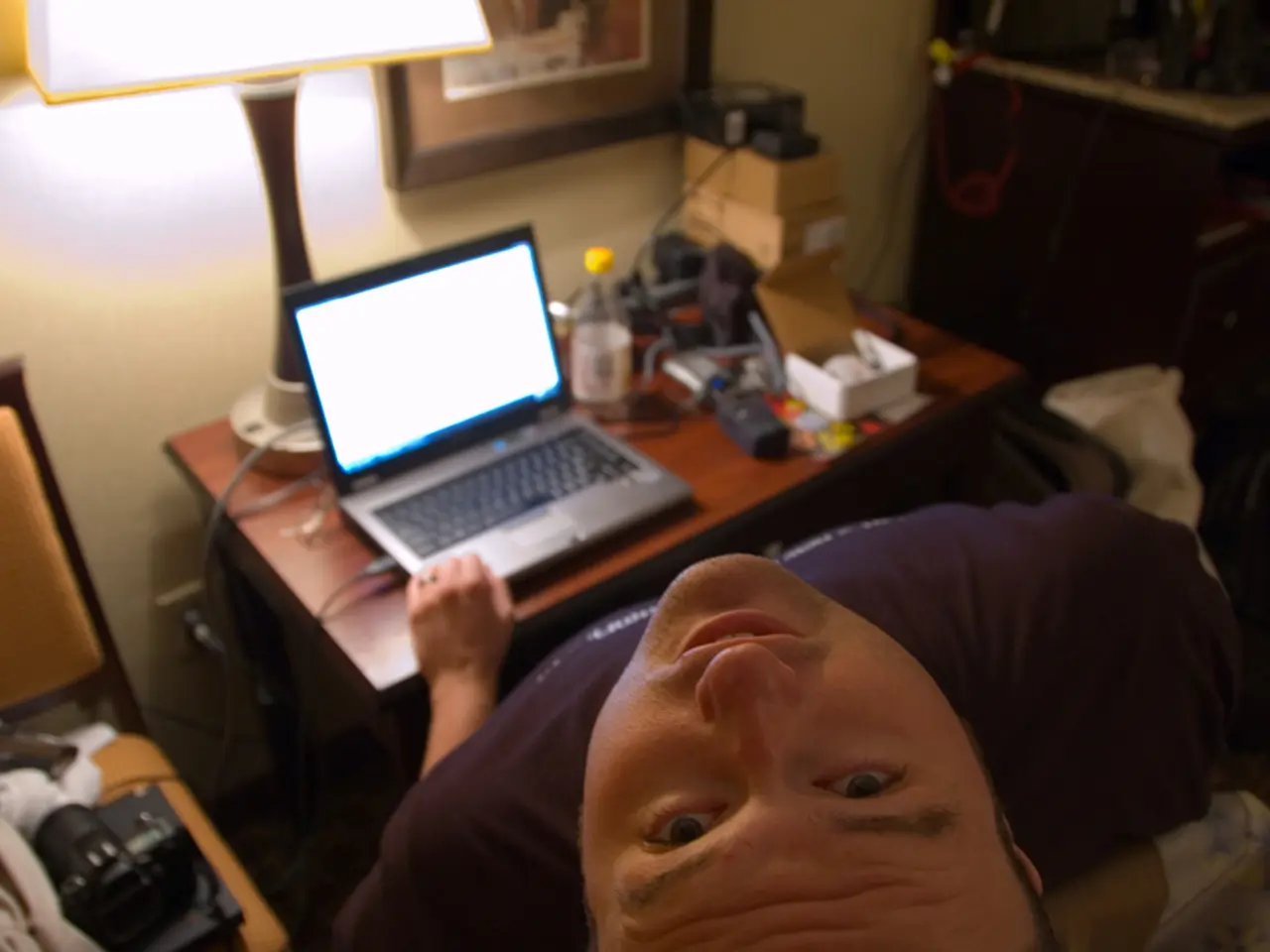Strategies for Overcoming Mental Exhaustion During Home-Based Work
Remote work has become the new normal for many, but maintaining productivity and mental well-being can be challenging. Here are some strategies that can help combat mental fatigue and boost performance.
Firstly, building a daily routine with clear work boundaries is crucial. By separating work time from personal time, remote workers can avoid the feeling of being "always on" and reduce the risk of burnout. Designating a dedicated workspace also helps maintain focus and mental separation between work and home life.
Taking regular breaks throughout the day is another essential strategy. Short micro-breaks for stretching or walking can prevent decision fatigue, boost creativity, reduce physical and mental exhaustion, and support overall health. Incorporating both cognitive and physical breaks into your routine is essential for maintaining energy and focus throughout the day.
Staying socially connected is vital for combating social isolation, which can negatively impact emotional well-being. Regular check-ins with colleagues help maintain engagement and provide support. Prioritizing self-care and stress management techniques, such as mindfulness or meditation, can build resilience against anxiety and fatigue.
Getting up and getting dressed each workday can create a psychological distinction between leisure and work time, enhancing productivity. Incorporating physical movement during breaks, such as stretching, yoga, or walking, can counteract the negative effects of prolonged sitting and improve emotional health.
Napping can be especially beneficial for remote workers who have the flexibility to incorporate rest into their daily routine. However, it's important to keep naps short (under 30 minutes) to avoid grogginess and maintain the regular nighttime sleep schedule. Aiming for 7-9 hours of quality sleep each night supports optimal brain function.
Employers can support remote workers by fostering open communication about mental health, creating wellness programs, and allowing flexible time off to recover from burnout when necessary. These approaches enable remote workers to sustain mental health, thus maintaining productivity and performance over time.
Cognitive breaks, such as reading, listening to music, or practicing mindfulness, allow the brain to recover and make it easier to focus when returning to work. Physical activity, like standing up, stretching, or taking a quick walk, can significantly boost energy levels and mental clarity.
Starting the day with a balanced breakfast that includes protein, healthy fats, and fiber can maintain stable energy levels throughout the day. Brain-boosting foods, such as berries, nuts, leafy greens, and fish, can help combat mental fatigue and improve focus.
Maximizing natural light and ergonomics in your work environment can improve mood, focus, and reduce mental fatigue. If natural light is limited, consider using daylight-simulating lamps to brighten your workspace and enhance focus. Using desk organizers or trays to keep your essentials in order reduces the mental load of searching for items while you work.
Remember, prioritizing sleep and maintaining a consistent sleep schedule are essential for maintaining cognitive function and preventing burnout. Avoiding screens and stimulants like caffeine in the hours leading up to bedtime can improve the quality of sleep.
By adopting these strategies, remote workers can combat mental fatigue, maintain productivity, and enjoy a healthier, more balanced work-life routine.
Incorporating cognitive breaks, such as reading or practicing mindfulness, helps the brain recover and refocus effortlessly when returning to work, enhancing overall mental health. Establishing a socially connected network with regular check-ins with colleagues offers emotional support and helps combat feelings of isolation.




